Achieving GDPR Compliance with Minimal Effort
What is GDPR?
The General Data Protection Regulation (GDPR) is a comprehensive data protection law that went into effect in the European Union on May 25, 2018, and established a single set of data protection rules that apply across the EU. GDPR compliance sets out specific requirements for how companies can collect, use, and store personal data. Businesses that handle the personal data of EU citizens must comply with GDPR, regardless of whether the company is based in the EU or not.
Customizing Your GDPR Compliance
Since GDPR requirements can be challenging to read, let alone implement, it is imperative to apply only the most relevant and necessary controls for verifying the right level of data protection and privacy management. With Cypago’s audit automation engine, you can generate a precise GDPR scope that includes all of the required controls. It has a full range of customization and adjustment capabilities that allows for fine-tuning, making it easier than ever to ensure GDPR compliance.
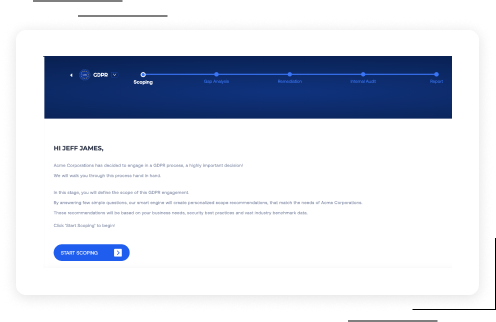
GDPR Compliance Monitoring
Companies must constantly review and update their data protection and privacy management practices to maintain ongoing GDPR compliance. To that end, Cypago has fully automated the process with an ongoing compliance-monitoring dashboard. This automated dashboard includes an in-depth analysis of existing gaps and provides in-depth visibility into your overall compliance posture.
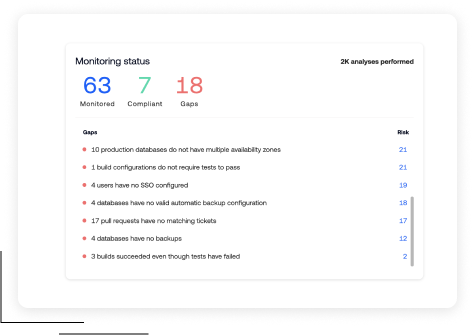
Data Protection and Access Control
GDPR requires organizations to protect personal data from unauthorized access, use, or disclosure. As a result, companies must implement measures such as encryption, access controls, and data backup systems to prevent data breaches. With Cypago’s User Access Review module, our users can enjoy a streamlined access review process and easy data access policy enforcement.
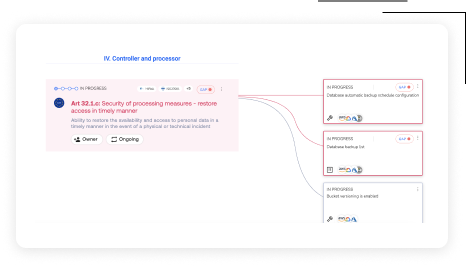
Privacy and Security by Design
With GDPR, organizations are obligated to consider data protection and privacy at all stages of a system’s design and development. This includes implementing measures such as data minimization and pseudonymization to protect personal data. Cypago’s Intelligent Compliance platform analyzes and monitors privacy and security features throughout the development lifecycle by collecting, tracking, and reporting various information security aspects across your DevSecOps stack.
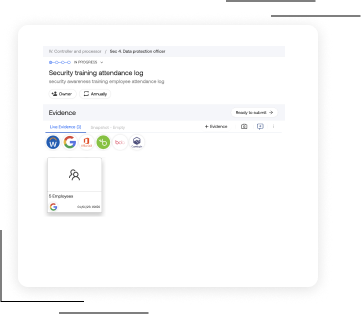
Reducing GDPR Costs
In today’s market, reducing operational costs is crucial for many organizations. Thanks to the Cypago Compliance Platform, essential actions like implementing appropriate technical measures, monitoring your policies and procedures, and enforcing data protection policies, are fully automated. As a result, Cypago significantly reduces potential costs, and provides a completely streamlined and optimized compliance experience with deep automation.
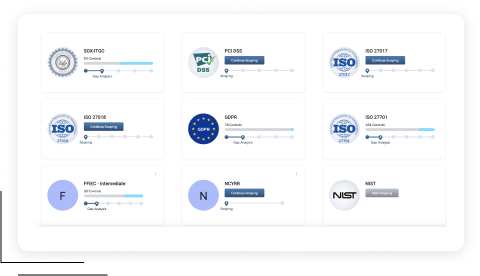
GDPR Automation is Vital for Your Success
The General Data Protection Regulation (GDPR) applies to any organization that processes the personal data of EU citizens, regardless of its location. The GDPR is important, in that it helps protect the privacy of EU citizens and safeguards their personal data. Automating GDPR compliance can help organizations ensure that they are meeting the requirements of the regulation by processing personal data in a transparent, secure and lawful way, and can also save time and resources by streamlining the compliance process.
By automating GDPR compliance, organizations can more easily manage their data protection obligations and reduce the risk of non-compliance.
If you have any questions or comments about any of the above, please feel free to contact us.
